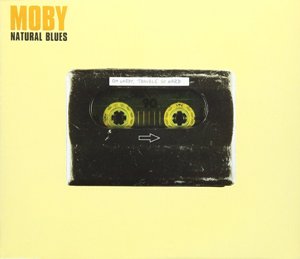Utah Saints are an English electronic music group. The band's members, Jez Willis and Tim Garbutt, were joined on-stage by additional musicians when they played live from 1991 to 2001. Since then they have performed as DJs. The band had three top ten and another five top 40 singles in the UK Singles Chart in the 1990s, as well as number one dance tracks in the UK and USA. They were notable for their pioneering use of sampling technology – in particular, their practice of manipulating samples from mainstream pop and rock songs and combining them with contrasting dance beats, using the samples in an entirely new context. The band wrote, produced and mixed all of their own music.

"South Side" is a song written and recorded by American electronica musician Moby. It was first released to radio in October 2000 as the seventh single from his fifth studio album, Play. Initially recorded with No Doubt frontwoman Gwen Stefani, production problems forced Moby to leave Stefani's vocals off the mix of the song included on Play; Stefani's vocals were then restored for the song's single release. The drums are sampled from "What's Up Front That Counts" by The Counts.

"Porcelain" is a song by American electronic musician Moby. It was released as the sixth single from his fifth studio album Play on June 12, 2000. Its melancholic lyrics describe the break-up of a relationship and were written by Moby – who also performs lead vocals on the track – based on his own reflections on past romantic affections. The song incorporates reversed string samples and piano rhythms into its instrumentation. While Moby initially expressed disdain over the song and its production, he was eventually talked into including it on Play.

"Praise You" is a song by British big beat musician Fatboy Slim. It was released as the third single from his second studio album, You've Come a Long Way, Baby, in 1999. It reached number one on the UK Singles Chart and in Iceland, number four in Canada, number six in the Republic of Ireland, and number 36 in the United States. As of 1999, it has sold over 150,000 units in the US.

Elliot John Gleave, better known by his stage name Example, is an English musician, singer, songwriter, rapper and record producer. His name arose due to his initials being E.G., which is an abbreviation of the Latin phrase exempli gratia.

"Natural Blues" is a song by American electronic musician Moby. It was released as the fifth single from his fifth studio album Play on March 6, 2000. The song is built around vocals sampled from "Trouble So Hard" by American folk singer Vera Hall (1937). "Natural Blues" was one of several songs on Play produced by Moby based on samples obtained from albums of American folk music originally compiled by field collector Alan Lomax.

"Why Does My Heart Feel So Bad?" is a song by American electronica musician Moby. It was released on October 11, 1999, as the fourth single from his fifth studio album Play. It became a hit in several regions, including German-speaking Europe, the United Kingdom, and New Zealand.

"Feeling So Real" is a song by American electronica musician Moby. It was released as the second single from his third studio album Everything Is Wrong on October 17, 1994. The single peaked at number 30 on the UK Singles Chart and at number nine on the US Billboard Dance Club Songs chart.

"Honey" is a song by American electronica musician Moby. It was released as the lead single from his fifth studio album Play on August 24, 1998, nine months prior to the album's release. The song incorporates vocal samples from "Sometimes" by American blues singer Bessie Jones, while its instrumentation is built around a repeating piano riff sampled from the song "Woman to Woman" by Joe Cocker. Moby discovered the "Sometimes" sample while listening to albums of folk music recordings compiled by field collector Alan Lomax. He subsequently composed "Honey", along with several other songs from Play, using the Lomax recordings.

"Bodyrock" is a song by American electronica musician Moby. It was released as the third single from his fifth studio album Play on July 12, 1999. Heavily inspired by hip hop music, the song incorporates vocal samples from "Love Rap" by Spoonie Gee and the Treacherous Three. The single peaked at number 38 on the UK Singles Chart.

"Go" is a song by American electronica musician Moby, released in March 1991 by record label Instinct as the first single from his self-titled debut album.

"Next Is the E" is a song by American electronica musician Moby, released in October 1992 as the third single from his self-titled debut album.

"Move " is a song by American electronica musician Moby. It was first released as the title track on Moby's extended play Move, which was issued on August 31, 1993 as his first release on Mute Records in the United Kingdom and on Elektra Records in the United States. It hit number one on the US Billboard Hot Dance Music/Club Play chart and number 21 on the UK Singles Chart.
"The Finest" is a 1986 hit single for the American band The S.O.S. Band. It is the fifth track on their sixth studio album Sands of Time and it is one of the group's last songs to feature the vocals of original lead singer Mary Davis. R&B singer, Alexander O'Neal shares vocals with Mary Davis. "The Finest" was a major success on the US R&B charts, reaching number two and was their last entry on the Hot 100, where it peaked at number 44. On the dance charts, "The Finest" peaked at number eight and was also their second top 20 hit on the UK Singles chart, reaching number 17.

Nero are a British electronic music trio composed of members Dan Stephens, Joe Ray and Alana Watson. On 12 August 2011, they released their debut studio album, Welcome Reality, which reached number one in the UK Albums Chart. In August 2012, "Promises" received a Gold certification in the United States. On 10 February 2013, Nero won a Grammy Award for their collaborative remix of "Promises" with Skrillex. Their second studio album, Between II Worlds, was released on 11 September 2015.

"Me and You" is a song by British dubstep trio Nero that appears on their debut studio album, Welcome Reality. It was released in the United Kingdom as a digital download on 2 January 2011, with a 12" vinyl available the following day. On 8 January 2011, the single debuted at number 15 on the UK Singles Chart, also managing to top the UK Indie Chart.

"Promises" is a song by British dubstep trio Nero that appears on their debut studio album, Welcome Reality on 5 August 2011. The song debuted at number one on the UK Singles Chart, becoming the group's first chart-topping single. It sold 46,700 copies in its first week, the lowest first-week sales for a number one in 97 weeks. In 2013, the Skrillex and Nero remix of the song, won the Grammy Award for Best Remixed Recording, Non-Classical. "Promises" was nominated for an Ivor Novello Award in the category of Best Contemporary Song. The song was featured on a Hewlett-Packard TV commercial in the United Kingdom, France, United States and Latin America, giving it a broader audience and more recognition. It was also featured in trailers from the video game Sonic & All-Stars Racing Transformed. It also featured in the 2013 video game Saints Row IV.

"Crush on You" is a song by British dubstep trio Nero that appears on their debut studio album, Welcome Reality. It was released as the fifth single from the album on 13 October 2011. The song peaked at number 32 on the UK Singles Chart and number seven on the UK Dance Chart. It heavily samples and features lyrics from The Jets' song "Crush on You".

Reaching Out is a song by UK electronic trio Nero from their debut album Welcome Reality. It was released as the sixth single from the album on 16 December 2011, peaking at number 92 on the UK Singles Chart and number nine on the UK Dance Chart.

Must Be the Feeling is a song by UK electronic music trio Nero from their debut album Welcome Reality. It was released as the seventh and final single from the album on 5 March 2012, peaking at number 25 on the UK Dance Chart. The song samples Carmen's 1984 song "Time to Move".


















